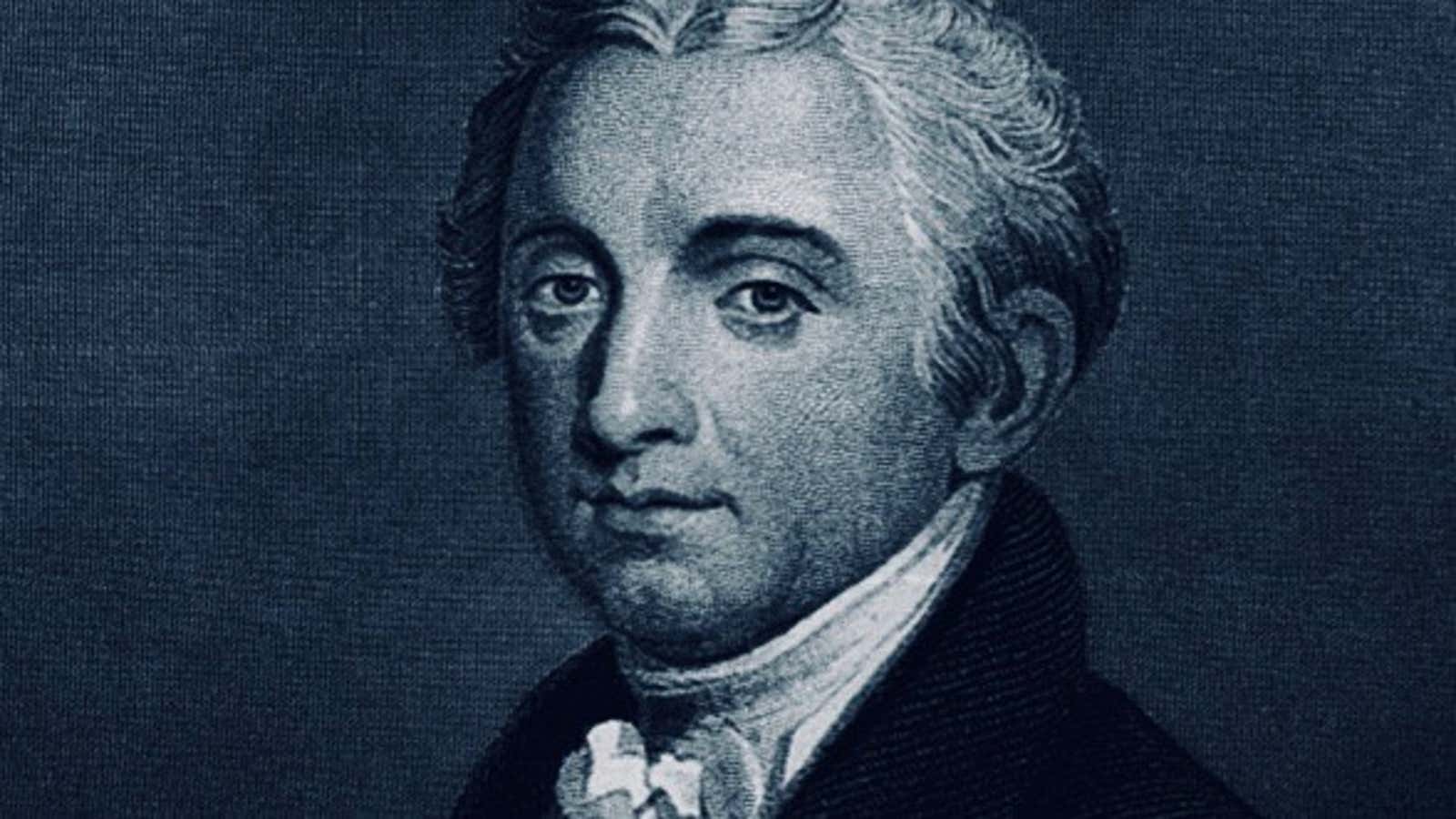At the US constitutional convention of 1787 in Philadelphia, which lasted months, framers fought over every word, clause, and concept that they’d ultimately include in the nation’s foundational legal document. They were careful until the end, but perhaps not careful enough.
Now, in light of the impeachment inquiry into president Donald Trump’s Ukraine dealings, a subtle change in the final version—the work of a dishonest scrivener—could arise in debates over interpretation of Article II, Section 4, the Constitution’s impeachment clause.
After months of argument and compromise, the constitutional delegates tasked a style committee with arranging a final draft of the Constitution. Pennsylvania delegate Gouverneur Morris, known as “Penman of the Constitution,” was a key player on the committee. He was also, it seems, a “dishonest scrivener,” according to William Treanor, dean of the Georgetown University Law Center and author of an epic paper outlining Morris’s linguistic treachery and the effects of his textual changes on the law, a work totaling more than 100 pages.
Treanor argues that Morris’s secret handiwork led to 12 subtle but substantive changes to the convention’s approved constitutional text that reflect what he fought for but lost on the debate floor. The textual changes advanced Morris’s constitutional goals, including strengthening the national government, the executive, and the judiciary; protecting private property; and fighting the spread of slavery.
Treanor’s paper explains:
While the mandate of the Committee of Style was limited, as drafter for the Committee Gouverneur Morris covertly challenged the results of the convention’s prior proceedings and revised a striking number of fundamentally important constitutional provisions in order to advance his constitutional agenda. He wrote text that could be read to, among other things…expand the range of the presidential impeachment clause.
Morris changes his mind
Morris didn’t start out supporting presidential impeachment at all. Some scholars have argued that, given his positions on the constitutional debate floor, there is no way he would have made changes that make it easier to impeach an American president. But Treanor argues that these scholars ignore the Philadelphia delegate’s changed views.
In a critical July 20 debate, Morris began by arguing against impeachment because “it will render the Executive dependent on those who will impeach.” But Treanor looks to statements made later that day, after Morris heard arguments for impeachment. The Philadelphia delegate shifted, first agreeing that “corruption & some other offenses…ought to be impeachable” and then went further, allowing that the executive should be impeachable for treachery, corrupting his electors, and incapacity, among other causes.
Morris ended up making a change to the impeachment clause of the Constitution that Treanor argues is meant to allow for an expansive view of executive impeachment. The version of the clause from the proceedings on the convention referred to the style committee stated: “He shall be removed from his office on impeachment by the House of Representatives, and conviction by the Senate, for treason or bribery or other high crimes and misdemeanors against the United States.”
But the version the committee produced in the end and was ratified dropped “against the United States.” It ends with “other high crimes and misdemeanors” instead. The clause reads: “The President, Vice President, and all civil officers of the United States, shall be removed from office on impeachment for, and conviction of, treason, bribery, or other high crimes and misdemeanors.”
Treanor contends that Morris’s final statement about impeachment, reflecting his changed views during that important July debate, suggests that his removal of “against the United States” wasn’t because he thought the phrase was redundant. “Rather, he had a capacious view on when impeachment was appropriate, including circumstances like ‘incapacity’ and being in ‘foreign pay’ and the modification was consistent with that view,” the dean writes.
Morris went from an opponent of presidential impeachment, fearing it would weaken the leader, to a proponent of a law that would allow for sanctions of an array of unspecified offenses. By removing “against the United States,” Morris was arguably ensuring impeachment isn’t just for offenses that betray the nation but also a leader’s office or the people’s trust. “The question whether this change was legally consequential played a central role in the debate about whether the impeachment of President Clinton was constitutionally permissible, and it has appeared in early debates about possible impeachment of President Trump,” Treanor writes.
The people’s version
By the end of the constitutional convention the delegates were exhausted and wanted to get home. They accepted the arrangement that the style committee presented and that’s now the text of the Constitution. Treanor argues that, despite Morris’s treachery, the right thing to do is to view the dishonest scrivener’s version as final because that’s the version “the people” ratified via their states.
But in the few Supreme Court cases that have considered the committee’s changes and their legal implications, justices have continually rejected its work as substantive and looked to the text of the proceedings on the constitutional convention instead. Only justice Clarence Thomas prefers turning to the final ratified text, the one Treanor says Morris doctored to advance an ambiguity that reflects his preference for an expansive view of executive impeachment.
